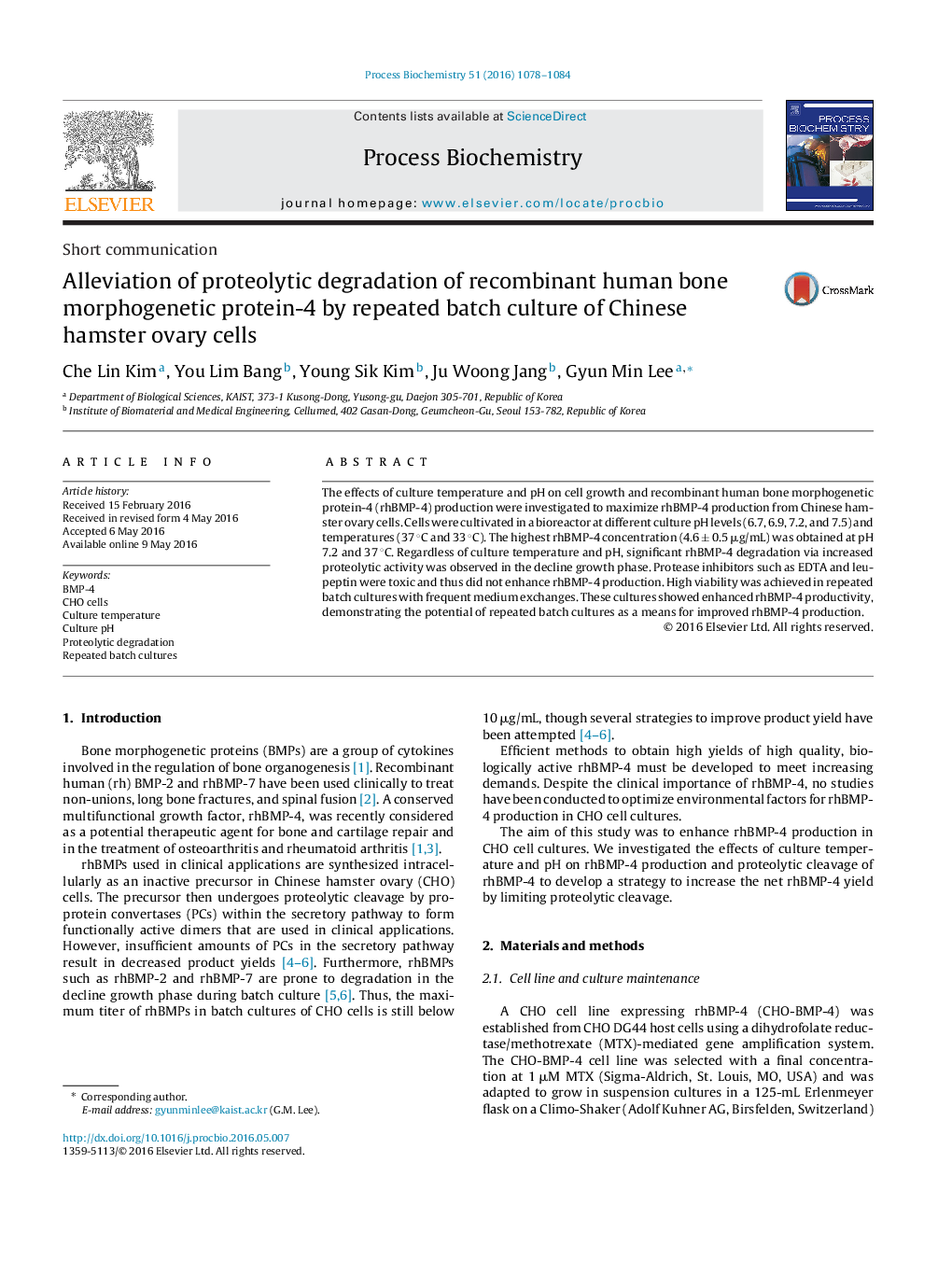| Article ID | Journal | Published Year | Pages | File Type |
|---|---|---|---|---|
| 34154 | Process Biochemistry | 2016 | 7 Pages |
•CHO cells producing rhBMP-4 were cultivated at various temperature and pH.•A significant degradation of rhBMP-4 was observed in the decline phase of growth.•Increased proteolytic activity was in part responsible for the degradation of rhBMP-4.•The addition of protease inhibitors was not effective in enhancing rhBMP-4 production.•Repeated batch cultures have a potential as a means for improved rhBMP production.
The effects of culture temperature and pH on cell growth and recombinant human bone morphogenetic protein-4 (rhBMP-4) production were investigated to maximize rhBMP-4 production from Chinese hamster ovary cells. Cells were cultivated in a bioreactor at different culture pH levels (6.7, 6.9, 7.2, and 7.5) and temperatures (37 °C and 33 °C). The highest rhBMP-4 concentration (4.6 ± 0.5 μg/mL) was obtained at pH 7.2 and 37 °C. Regardless of culture temperature and pH, significant rhBMP-4 degradation via increased proteolytic activity was observed in the decline growth phase. Protease inhibitors such as EDTA and leupeptin were toxic and thus did not enhance rhBMP-4 production. High viability was achieved in repeated batch cultures with frequent medium exchanges. These cultures showed enhanced rhBMP-4 productivity, demonstrating the potential of repeated batch cultures as a means for improved rhBMP-4 production.
Graphical abstractFigure optionsDownload full-size imageDownload as PowerPoint slide
